I’m pleased this month to have the assistance and discerning ears of Lee and Simon, two of my intrepid contributors, who have consented to give some stuff a listen. So here’s some great recordings that came Make Your Own Taste’s way in the last… oh, you know, while…
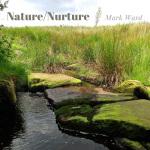
British ambienteer Ward is something of a dilettante on his recordings, but he can get away with it because he’s damn fine at everything he tries. Nature is often the theme of his music, as it is here. “E Minor Blues” has a title that doesn’t do the piece justice; this might be the best slice of new age space blues that Manuel Göttsching never recorded, a mix of sequenced bass synth, cascading waves of guitar that sound Echoplexed, not delayed (whether they are or not!) with bluesy Dave Gilmour-style licks occasionally thrown in overtop. “Town Square” starts much the same but an urgent beat and field recordings soon come in to change the mood. Sort of for Biosphere, FSOL or Rod Modell fans, I’d say. “Otomata” is another piece in the same vein, with cool pads swooping over restrained loungy beats. “Oscillations” finishes the beat trilogy in a similar bent. You could actually dance to those last three tracks if you wanted to. I wouldn’t, but you might. (A.T.)
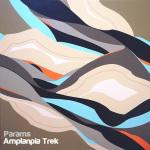
Params – Amplanpia Trek
Usually when an artist releases a long-form, single-track album (in this case 38 mins) they take their time in unfolding their ideas extremely sloooowly (I am guilty of this myself), but Params’ Amplanpia Trek does not do this. The whole song appears to have separate movements, or ideas that shift and change every 5 minutes or so, which I wasn’t expecting (there’s even a moment of silence halfway through, suggesting “side 2″).
Over the course of album, glitchy organs and pads slice and morph into themselves, always moving but not getting too repetitive. Unabrasive rhythms bubble throughout as the melodies start to dissonate and resolve, keeping everything moving nicely — a bit like staring at an 8-bit lava lamp. Overall, a very enjoyable listen that works either as background or focused listening. (Lee Rosevere)

Unland – s/t
This trio from Germany came together earlier this year as a side project to create improvised ambient music with electronic elements. What they created is absolutely entrancing and very beautiful.
The combination of piano, guitar and clarinet is a little unusual, but it results in a rich texture of sound that has space to develop over 6-7 minutes that never feels too long. Their skill as an improvisational unit is quite evident — nobody steps on the others, each song follows a silent narrative and I find it a little hard to believe they can create such gorgeous songs as “Scene 2″ completely improvised (had they not filmed each song as they performed it live I wouldn’t believe it).
Add in some dark soundtrack-elements and this outfit could be scoring movies right now. This is definitely one of the most enjoyable albums of the year for me and I greatly look forward to what they’ll release next. (Lee Rosevere)
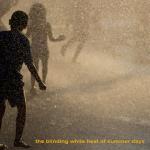
V/A (Preserved Sound) – The Blinding White Heat of Summer Days
This is a free sampler from this fine label, released for summer listening, but being me, I’m getting to it a bit late. Still, this is quite likely not the last time I’ll be reviewing a Preserved Sound release. The label’s thing is ruminative instrumental music, more organic than electronic, which is pretty neat here in the age of bleep-bleep music, so for people who like artists like Colleen or Stephan Micus, Preserved Sound is where it’s at.
Each of these artists has a lovely mood to offer in their track, from the solo neo-classical piano of Tess Said So’s “Intervention” to the moody drone folk of Richard Young’s “Red Alphabet in the Snow”. Other favourites are the dramatic sound art of Adrian Lane’s “Others in Innocent Surprise” and 3+’s lovely piano- and string-based “Trace of Reminiscence”, but really, all of these pieces are quite beautiful.
Preserved Sound is quickly carving out a niche in the modern classical world with this material, and the success is well deserved. (A.T.)

Avoidant – Songbook Sines
A moody four-track collection of drones from this Portuguese artist on the Etched Traumas net label. As I comment frequently, that’s probably the most commonly found kind of ambient these days, but I do like to point it out when I hear someone doing it well. Avoidant’s music, on this release at least, sits at the dark ambient end of the spectrum. “Black Curtains” is a claustrophobic, mechanized drone pulse that gradually increases in intensity. A nice piece of minimalism. “Five Burroughs” retains that throb but adds some higher frequencies and a hint of lightness. “Milk Thief” is extremely experimental noise music, albeit pretty quiet, and is best consumed by those who enjoy the avant-garde end of things, while the very subtle bassiness of the even more minimal “Bedroom Community” is for the lover of “quiet music”, which is a thing; the effects are subliminal but beneficial. A very good drone release. (A.T.)
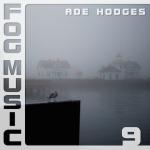
Ade Hodges – Fog Music
Aural Films’ Fog Music series has so far covered a wealth of styles and themes with such a consistently high standard that it’s hard to pick out one single volume as a clear highlight. Ade Hodges’ contribution doesn’t make that any easier. Listening to it brought back memories of watching a lighthouse in operation on the Devonshire coast, with its powerful light circling out to sea, yet Ade’s piece took me away from the shoreline and onto one of the ships being guided away from danger. It was so blindingly dense that you couldn’t see what lies ahead, yet you still felt the comfort of having someone there with you, watching out for you and keeping you safe. A remarkable and transcendental piece that feeds the imagination. (Simon Slator)
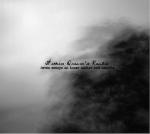
Wordy title aside, this is a very interesting release from German guitarist Christoph that mixes various acoustic instruments with some dark ambient textures. The influences are definitely from the worlds of classical, prig-rock and folk music, which is evident right from the first notes of the pretty nylon-string piece that commences the recording, “Set Out For the Bright”, which is very Micus-esque (I love to reference him, I know, but it’s applicable here). Steve Hackett and Anthony Phillips’ classical playing is another applicable reference. The sixteen-minute piece also contains some nice field recordings and a chamber-prog finish. Quite dramatic and a really nice piece of melancholy progressive music; Opeth fans take note! Other pieces contain some lovely piano (the Harold Budd-esque “On How to Keep Hold of Mirth”) and some poetic recitation (“Meandering Scar”). “Nausikaa” even sounds a bit like a genuine flamenco piece. A quite dark, almost gothic listen, this album sets a contemplative mood and ought to be pretty essential listening for any adventurous listener who loves the nylon-string guitar. (A.T.)



